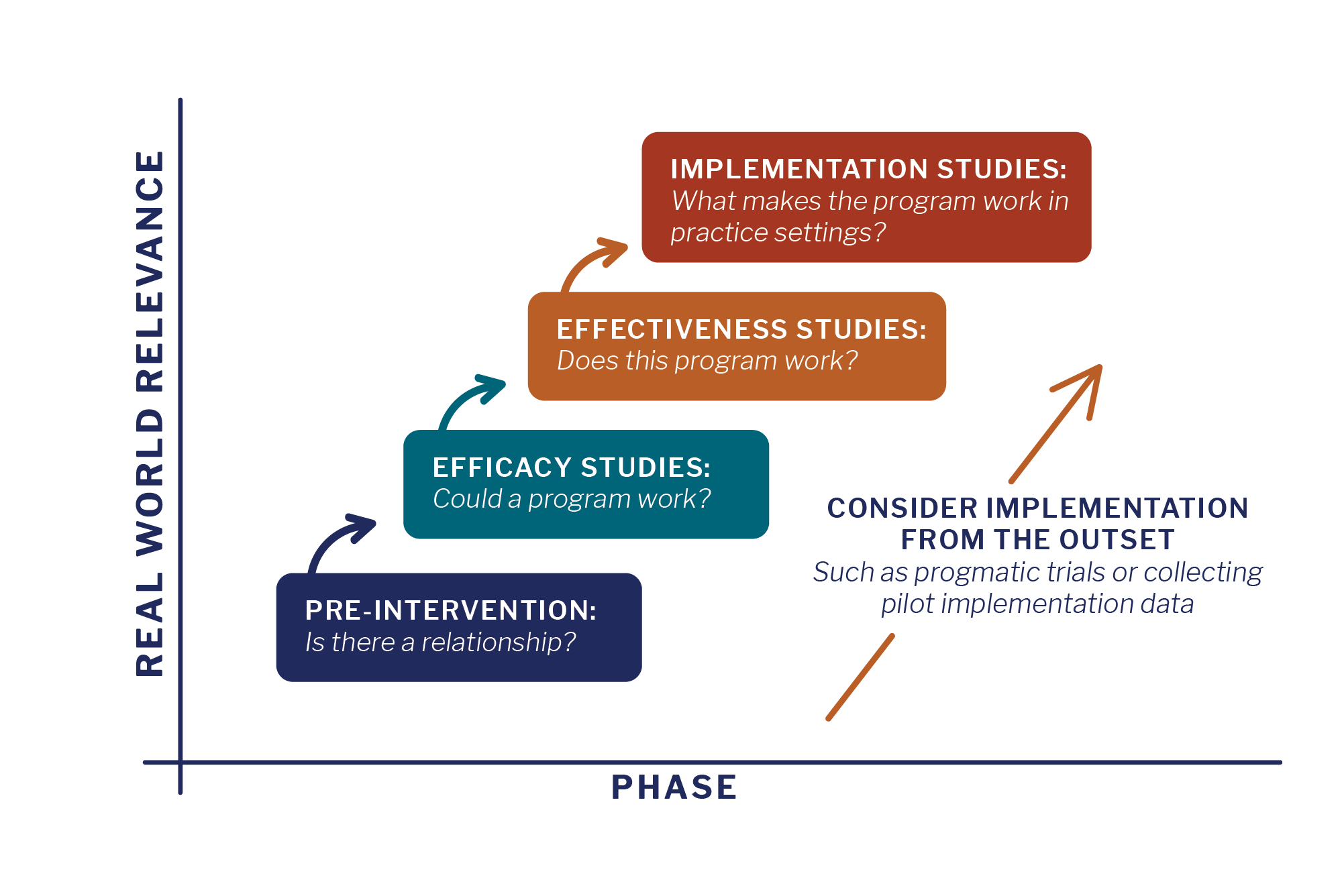D&I 101
Implementation science is defined as the scientific study of methods and strategies to facilitate the uptake of evidence-based practices and interventions into routine use by practitioners and policymakers. Models and frameworks guide the planning, implementation, and evaluation of these evidence-based interventions, defining key constructs such as acceptability, adoption, fidelity, and sustainment. A crucial aspect of implementation science is ensuring that effective interventions also reach and benefit all populations equitably. The field employs various methods, including mixed-methods research and hybrid pragmatic trials, among others, to evaluate the success of these efforts.
Dissemination science, on the other hand, is defined as the study of how to effectively communicate and spread these evidence-based findings and interventions to different audiences to improve population health. This involves developing strategies to tailor communication and evaluating the effectiveness of these efforts to spread knowledge, research findings, and evidence-based practices. Dissemination researchers often employ similar methods as those used in implementation science, which is why the field is often collectively referred to as “D&I”.
Together, the field of dissemination and implementation science work to close the gap between what we know and what we do.
Translational Research Continuum

View image description.
Figure adapted from Landsverk et al, Chapter 12, figure 12-1. Stages of research and phases of dissemination and implementation research, in Brownson, Colditz and Proctor 2012, Dissemination and Implementation in Health: Translation Science to Practice, Oxford: Oxford University Press.
Theories, Models, Frameworks
Tools for understanding and conceptualizing implementation and dissemination.
Research Designs
Common research designs used in implementation and dissemination studies.
Implementation Strategies
Techniques to enhance the use and sustainability of evidence-based practices.
Outcomes
Frequently used measures to evaluate implementation efforts.

